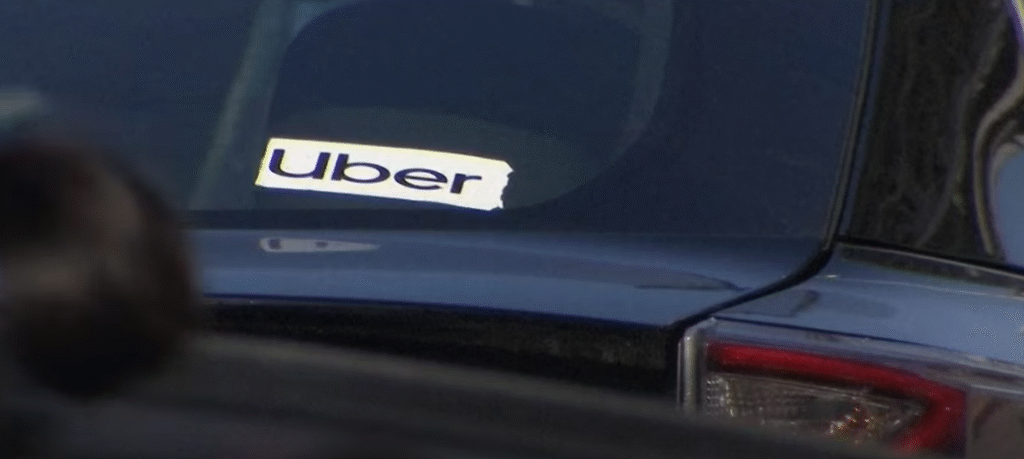The Department of Justice’s lawsuit against Uber has brought attention to the way in which technologically advanced transportation services handle passengers with disabilities. Uber drivers allegedly violated the Americans with Disabilities Act by repeatedly refusing rides to people with service animals, charging unlawful cleaning fees, and failing to provide reasonable accommodations, according to federal prosecutors.
Policies are only one aspect of the story; personal accounts that vividly depict the accusations are also included. A driver in New York left a seven-year-old amputee stranded after glancing at his wheelchair and asking, “Is that coming?” After missing his flight, Jason Ludwig, a Gulf War veteran who relied on his service dog, was refused a ride to the airport and made to make the exhausting 16-hour drive. After disclosing that he was traveling with a guide dog, Jeff Clark, a blind passenger in New Jersey, had to endure four cancellations in a span of 17 minutes. The human cost of systemic failures is illustrated by these anecdotes, each of which is painfully specific.
For its part, Uber maintains that it forbids discrimination and mandates that drivers adhere to accessibility guidelines. With a zero-tolerance policy and a hotline for denied rides, the company has promised prompt action, including account deactivation. However, given how frequently the same problems reappear despite prior settlements, disability advocates emphasize that these measures have been remarkably ineffective.
Table: Uber Technologies – Case Overview
| Category | Information |
|---|---|
| Company Name | Uber Technologies, Inc. |
| Founded | 2009 |
| Headquarters | San Francisco, California |
| CEO | Dara Khosrowshahi |
| Industry | Ride-hailing, Food Delivery, Freight, Courier Services |
| Operations | 70+ countries, 15,000+ cities |
| DOJ Lawsuit Filed | September 2025, Federal Court in Northern California |
| Key Allegations | Discrimination against passengers with disabilities |
| Law Cited | Americans with Disabilities Act (ADA), Title III |
| Damages Sought | $125 million in compensation for affected riders |
| Prior Settlements | 2021 DOJ settlement on discriminatory wait fees; $1.1M arbitration case 2021 |
| Known Accessibility Issues | Ride denials, illegal cleaning fees, cancellation fees for disabled riders |
| Reference Link | Justice Department – Uber Lawsuit |

Although noteworthy, the $125 million in damages sought by the DOJ is insignificant in comparison to Uber’s tens of billions of dollars in yearly revenue. But for riders, the lawsuit means more than just financial gain—it means recognition. Being stuck in bad weather, missing doctor’s appointments, or losing out on a job are all serious disruptions that lower quality of life.
Uber has a lengthy history of receiving complaints about accessibility. The National Federation of the Blind filed lawsuits against it in 2014 regarding service animals. The Equal Rights Center voiced concerns regarding wheelchair accessibility in 2017. In 2021, a blind rider won $1.1 million after being denied repeatedly because of her guide dog, and Uber paid more than $2 million in a DOJ settlement over discriminatory wait fees. Advocates contend that Uber has not demonstrated noticeably greater accountability in spite of these legal repercussions.
This lawsuit is especially important because of the cultural moment. Across industries, discussions about corporate responsibility, equity, and inclusion are becoming more and more popular. The voices of people with disabilities have been amplified by public figures such as Selma Blair and Marlee Matlin, who remind the public that accessibility is a civil right and not a luxury. That larger narrative is tapped into by the DOJ’s case against Uber, which makes it clear that businesses that influence daily life can no longer afford to ignore inclusivity.
Liability is complicated by the company’s defense, which focuses on the claim that drivers are independent contractors rather than employees. However, courts have routinely dismissed Uber’s attempts to avoid accountability. The legal precedent that supports the DOJ’s current stance was reinforced in 2021 when then-Judge Ketanji Brown Jackson confirmed that Uber is subject to the ADA.
The case has the potential to significantly alter the rideshare platform landscape if the DOJ wins. In addition to enforcing more stringent accessibility guidelines, Uber would also have to contend with pressure from rivals like Lyft and up-and-coming autonomous car companies to incorporate inclusive practices into their operations. Far beyond the disabled community, the ripple effect may be especially helpful for older riders, parents pushing strollers, and people recuperating from short-term injuries.
Uber’s accessibility shortcomings, according to critics, are remarkably similar to those of other tech behemoths in terms of their civil rights compliance. While food delivery apps have come under fire for denying people with mobility issues access, Airbnb has been accused of racial discrimination by hosts. A growing impatience with corporate apologies followed by little change is reflected in the DOJ’s lawsuit.
The stories circulated online demonstrate the case’s emotional impact. The experiences of riders have been magnified by social media campaigns such as #AccessDenied, which have transformed individual accounts into a group call for responsibility. This online chorus has significantly changed public opinion in recent days, with many advocating for laws that impose more than just voluntary compliance.

